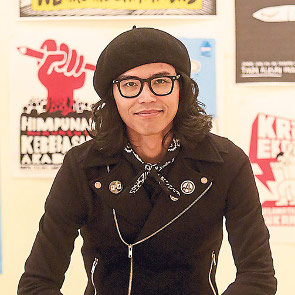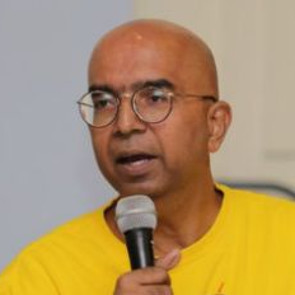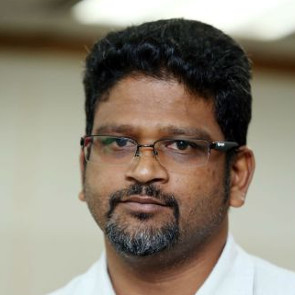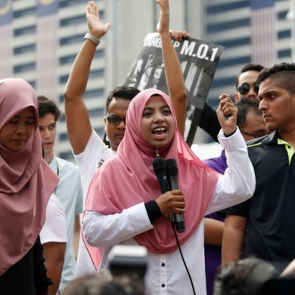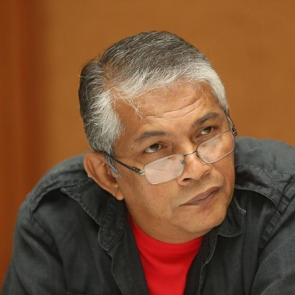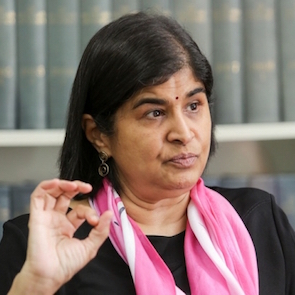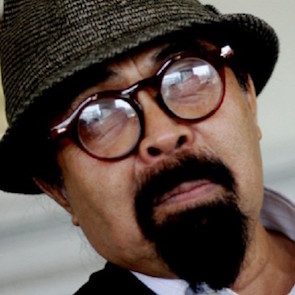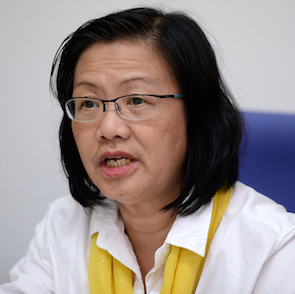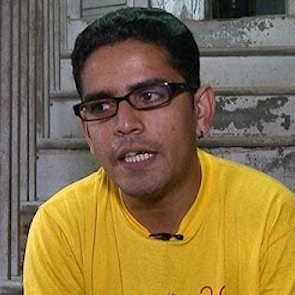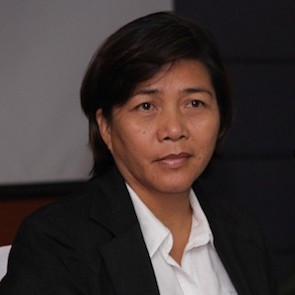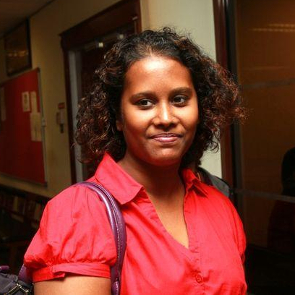UPR Submission - Malaysia 2018
Submission to the 31st Session of the Universal Period Review, November 2018
Date Submitted: 1 April 2018
INTRODUCTION AND KEY CONCERNS
1. Human rights defenders (HRDs) in Malaysia face judicial harassment, arbitrary arrest, threats and intimidation. HRDs fighting corruption, campaigning for electoral reform and free and fair elections are particularly vulnerable and are targeted for participating in peaceful protests. Lesbian, gay, bisexual, transgender and intersex (LGBTI) rights defenders also face widespread discrimination and harassment.
2. As noted by the Special Rapporteur on the situation of HRDS, the space for civil society is increasingly shrinking, especially in relation to freedom of expression, assembly and association.1
DEVELOPMENTS SINCE LAST UPR
3. No specific recommendations were made with regard to the situation of HRDs during Malaysia's previous review in 2013. Malaysia accepted a recommendation to make efforts to "enhance the exercise and enjoyment" of the right to freedom of assembly made by Indonesia. However, no such enhancement has been noted and many HRDs have been targetted with the 2012 Peaceful Assembly Act.
4. Malaysia partially accepted a recommendation made by Austria to "strengthen and promote the rights of journalists and bloggers to freely exercise their right to freedom of expression." Despite this, there has been a crackdown on public debate through the frequent use of the 1998 Communications and Multimedia Act.
5. As of March 2018, the government had yet to accept requests by the UN Special Rapporteur on the situation of HRDs, the UN Special Rapporteur on the promotion and protection of the right to freedom of opinion and expression and the UN Special Rapporteur on rights to freedom of peaceful assembly and of association to visit the country
6. Since December 2013, Front Line Defenders has documented cases of judicial harassment under the Peaceful Assembly Act, the Communications and Multimedia Act and the Sedition Act. It has also documented cases of threats and harassment against HRDs and organisations, especially the prolonged harassment of Maria Chin Abdullah, then Chairperson of the Malaysian anti-corruption movement Bersih 2.0.
7. It is especially concerning that many HRDs have been repeatedly targeted with multiple cases under various laws, and have also been victims of death threats and harassment (see various members of Bersih, Siti Kasim, and Adam Adli below).
LEGISLATIVE FRAMEWORK
8. A number of restrictive laws are used against HRDs to target them with detention, imprisonment, raids on their organisations and fines.
9. Freedoms of assembly and association are limited on the grounds of maintaining security and public order, with the 2012 Peaceful Assembly Act obstructing street protests and giving powers to the police to control the conditions for a rally or protest. Organisers of rallies that are critical of the government are particularly targeted. The scope of this act is wide and vague and often results in the restriction rather that the enjoyment of the right to freedom of assembly.
10. Up to 2016, the 1948 Sedition Act has been the preferred tool of the Malaysian authorities to target HRDs, journalists, human rights lawyers and artists expressing dissent with arrest and prosecution. A 2015 amendment to the Act added religion to the list of seditious offences and brought electronic media and sharing on social media under the Act. According to SUARAM, a Malaysian human rights organization, the number of people charged under the Sedition Act rose dramatically from 10 in 2013 to 29 in 2014 and 206 in 2015, following the 2013 General Elections.2
11. In the context of the human rights community's legal battle to challenge the constitunality of the Sedition Act, since 2016 the Communications and Multimedia Act 1998 (CMA), has overtaken the Sedition Act as the primary law being used to prosecute HRDs exercising their right to freedom of expression. The CMA continues to be used to silence government critics, who are harassed, intimidated and often detained. HRDs focusing on human rights violations caused by corruption have been particularly affected. Section 233(1)(a) of the CMA is broad in scope, vague and ambiguous and is being used to stifle speech and expression and quash protest. According to SUARAM, on 6 November 2017 a parliamentary reply by the Deputy Communications and Multimedia Minister revealed that there were 269 cases investigated under the CMA between 1 January and 30 September of 2017.3
12. On 8 January 2018, the Federal Court quashed a 2016 Court of Appeals ruling in relation to the Sedition Act, reaffirming that it only needs to be proven that the accused has made a seditious statement, without the need to prove intention.
13. The Security Offences (Special Measures) Act 2012 (SOSMA), which is mainly used to target ‘suspected terrorists’, has also been used against HRDs. On 18 November 2016, then Chairperson of Bersih 2.0 Maria Chin Abdullah was arrested during a raid on the organisation’s offices and kept in detention under this act for 10 days. She was arbitrarily detained under SOSMA, which permits police to detain suspects for 28 days without charges. Another member of Bersih 2.0, Mandeep Singh, was also arrested and released on bail the same day. He was arrested under Sections 147 and 511 of the Penal Code for ‘rioting’ and for ‘acts punishable with imprisonment’. It is thought that their arrests designed to disrupt a Bersih 2.0 gathering in Kuala Lumpur, which took place on 19 November 2018 despite their arrests.
14. At the time of writing, the proposed Anti-Fake News Bill had received Cabinet approval and had been tabled in Parliament. The proposed law is supposed to prevent the spread of unverified news and identify offences that can be interpreted as spreading fake news, which would give the government an alarmingly high level of control over the dissemination of information. The law entails fines of up to RM 500,000 (approximately 102,950 EUR) and/or imprisonment of up to 10 years. It is believed that the legislation could be used to muzzle dissent and to target HRDs in light of the upcoming general election, which will be held before 24 August 2018.
(a) Misuse of the Sedition Act 1948
15. On 14 April 2016, the Kuala Lumpur Sessions Court found Haris Ibrahim, a member of the steering committee of the Negara-ku People’s Movement, guilty of making seditious statements during a gathering at the Kuala Lumpur and Selangor Chinese Assembly Hall in 2013. The Negara-ku People’s Movement works to counter misinformation and to promote an all inclusive society free of discrimination. According to the Court, the comments of the HRD were aimed at influencing Malaysians to oust the government through unlawful means after he expressed discontent at how the new government had been formed despite losing the popular vote. Haris Ibrahim was convicted under Section 4(1)(b) of the Sedition Act and sentenced to eight months imprisonment.
16. On 5 February 2015, human rights lawyer Eric Paulsen was charged before the Kuala Lumpur Sessions Court with sedition. The charges stemmed from a tweet posted by the HRD on 9 January 2015 that accused the Malaysian Islamic Development Department (Jakim), the main federal agency managing Islamic affairs, of promoting extremism in its Friday sermons.
17. On 19 November 2014, the Sessions Court found Adam Adli Abdul Halim, a campaigner for the rights of students and academic freedom, guilty of a sedition charge and sentenced him to 12 months in prison. The charge was in relation to a speech he made at a post-election forum at the Kaula Lampur and Selangor Chinese Assembly Hall on 13 May 2013. In his speech he urged people to protest the widely contested 2013 general election results. In February 2016, the High Court rejected his appeal and upheld his conviction but substituted the prison term with a fine of RM 5,000 (approximately 1,030 EUR). He was acquitted on 22 February 2018.
RESTRICTIONS ON ASSOCIATION
18. On 13 June 2017, HRD Siti Kasim was informed that she would be charged for “obstructing a public servant” during a raid which was carried out by the Federal Territories Islamic Religious Department (Jawi) in Kuala Lumpur on 3 April 2016 on an event hosted by transgender women. Siti Kasim is a human right lawyer and an indigenous peoples’ and LGBTI rights defender.
19. At around midnight on 28 November 2016, Royal Malaysian Police raided the offices of EMPOWER in Petaling Jaya, refusing to show a search warrant to the employees and lawyers of the women’s rights organisation. After four hours, the police left with about six boxes of documents. The organisation was investigated under Section 124(c) of the Penal Code.
20. On 18 November 2016, Bersih 2.0 office were raided by 10 police officers and four officers from the Malaysian Communications and Multimedia Commission (MCMC). No search warrant was presented during the raid. The police confiscated 10 laptops, two boxes of documents related to Bersih 2.0’s bank accounts, identity cards, payroll files and mobile phones of Maria Chin Abdullah and Mandeep Singh. Staff were informed that Bersih 2.0 was being investigated under Section 124(c) of the Penal Code for activities ‘detrimental to parliamentary democracy’.
21. In November 2016, at least 20 non-governmental organisations, including the Bar Council and Bersih 2.0, were investigated for allegedly receiving foreign funding. They were accused of using this funding to undermine democracy and potentially destabilise the Malaysian state. Both organisations were accused of receiving funding from Open Society Foundations in order to influence the result of general elections.
22. In January 2014, the Home Ministry declared the Coalition of Human Rights NGOs (COMANGO) illegal, accusing it of promoting sexual rights contrary to Islam and alleging that majority of the member organisations were un-Islamic and unregistered. It is believed that the ban was an act of reprisal for COMANGO’s civil society submission documenting human rights concerns ahead of Malaysia’s review at the 2013 UPR. This has resulted in the organisation facing difficulties in carrying forward its work and in securing funding.
RESTRICTIONS ON FREEDOM OF ASSEMBLY AND MOVEMENT
23. Despite fully accepting a recommendation on facilitating freedom of assembly in the previous UPR cycle, Malaysia continued its crackdown on political rallies and to restrict freedom of assembly.
24. On 9 December 2016, student HRDs Anis Syafiqah, Luqman Nul Haqim, Luqman Hakim and Suhail Wan Azahar were brought before a disciplinary panel and found guilty of violating the Universities and University Colleges Act 1971. They were suspended and fined for ‘acting in a manner detrimental and prejudicial to the interests and good reputation of the university’, and ‘acting in a manner detrimental to public safety’ for organising and participating in the peaceful Tangkap MO1 rally against state corruption and fraudulent use of a public trust fund.
25. On 8 September 2015, HRDs Maria Chin Abdullah, Mandeep Singh and Adam Adli Abdul Halim were among nine activists charged under the Peaceful Assembly Act for organising and taking part in an allegedly unlawful assembly held in Kuala Lumpur on 28 March 2015. The purpose of the rally was to demand institutional reforms and the resignation of Prime Minister Mohd Najib bin Abdul Razak, in connection with allegations of financial mismanagement of a state investment firm and embezzlement. In November 2017, Maria Chin Abdullah was informed by the police that the case against her had been closed following a year-long investigation.
26. On 23 July 2015, travel bans were imposed on human rights lawyer and women and indigenous peoples’ rights defender Datuk Ambiga Sreenevasan, Maria Chin Abdullah, Hishamuddin Rais, an active member of Bersih who makes films and writes on human rights issues, and Adam Adli Abdul Halim. They were informed that if they wished to travel outside the Malaysian peninsular, they would need to inform the nearest Department of Immigration Office. Ambiga Sreenevasan’s travel ban denied her permission to travel to the east of Malaysia (Sabah and Sarawak).
27. On 21 October 2015, Jannie Lasimbang, former chairperson of Bersih 2.0 in the northern state of Sabah and current president of the Asia Indigenous Peoples Pact, was charged in the Magistrate’s Court in Kotu Kinabalu, Kuala Lumpur. The Court charged her on two counts of organising an illegal assembly and two counts of failing to comply with conditions imposed by the police in August 2014 under the Peaceful Assembly Act 2012, during a series of planned Bersih 2.0 rallies. She was discharged and acquitted a year a year later in December 2016.
JUDICIAL HARASSMENT
28. Continued judicial harassment of HRDs who were critical of government policy as it related to human rights was observed, and included detention, prison sentences, raids and fines.
29. On 16 May 2017, Thomas Fann, Sevan Doraisamy and Rama Ramanathan, defenders working to monitor cases of enforced disappearances and assisting families of missing victims, were summoned by the police for questioning over a statement they released that asserted abductions perpetrated between November 2016 and February 2017 were enforced disappearances, i.e. carried out with the “authorisation, support or acquiescence of the State”.
30. On 10 June 2016, Fahmi Reza, an anti-corruption HRD and artist, was charged under Section 233(1)(a) of the Communications and Multimedia Act 1998 for posting a satirical image of the Malaysian Prime Minister as a clown along with the Malaysian Communications and Multimedia Commission (MCMC) logo on his Facebook account on 8 February 2016. He posted the image in protest of the decision of the attorney general to clear the prime minister of corruption charges, and in a separate instance to protest the frequent usage of the Sedition Act to target human rights defenders and individuals in Malaysia. On 20 February, 2018, he was sentenced to one month’s imprisonment and fined RM 30,000 (approximately 6170 EUR) by the Sessions Court in Ipoh.
31. On 22 March 2017, the Magistrate’s Court in Kuala Lumpur sentenced Lena Hendry, a WHRD and filmmaker working for the rights of indigenous peoples, urban poor and workers, to a fine of RM 10,000 (approximately 1060 EUR) or one year in prison for screening 'No Fire Zone: The Killing Fields of Sri Lanka' in 2013. The documentary highlights human rights violations in Sri Lanka committed by the government and the military against its citizens during the course of Sri Lankan civil war in 2009.
THREATS AND HARASSMENT
32. HRDs were targets of death threats and threats of violence both online and offline during the period under review.
33. On 23 July 2017, human rights lawyer, as well as an indigenous and LGBTI rights defender Siti Kasim lodged a police report in Kuala Lumpur against a man who called for her to be killed on an online platform, leading dozens of his followers to make death, rape and acid attack threats against her.
34. On 29 November 2016, after being released from detention (see para 13), Maria Chin Abdullah returned home to discover that an envelope containing a bullet and a threatening message had been delivered to her. This was the third time the HRD was subjected to death threats in 2016 alone. Earlier on 17 October 2016, HRDs Maria Chin Abdullah, Mandeep Singh and Ambiga Sreenevasan received death threats, most likely from the Islamic State Malaysia in Petaling Jaya city. Maria Chin Abdullah received extremely violent and graphic Whatsapp messages threatening to kill her and her three sons. The threat also referred specifically to a Bersih 2.0 rally that the HRDs were planning to organise on 19 November 2016.
RECOMMENDATIONS
35. Front Line Defenders calls upon the member states of the UN Human Rights Council to urge the Malaysian government to prioritise the protection of HRDs and in doing so:
- Fully guarantee the exercise of the right to freedom of peaceful assembly, and ensure that public events and gatherings organised by human rights groups are not disrupted;
- Ensure that investigation into cases of threats against HRDs are effective, impartial, and prompt;
- Review restrictive laws including the Peaceful Assembly Act, the Communications and Multimedia Act, Security Offences Act and the Sedition Act with a view to ensuring their full compliance with international human rights law and that they are not used against the legitimate work carried out by HRDs;
- Cease judicial harassment of HRDs and ensure that all HRDs in Malaysia are able to carry out their legitimate human rights activities free from arbitrary arrest and judicial harassment;
- Accept and fully implement the UPR recommendations on right to freedom of assembly and right to freedom of expression in a transparent and participatory manner with full involvement of HRDs at all levels;
- Become a party to core human rights conventions, including the ICCPR, ICESCR, CAT, CPED, CERD and ensure full respect of the UN Declaration on HRDs, including in particular the right to freedom of expression, association and assembly.
- Ensure that HRDs are given adequate protection through domestic mechanisms and allowed to conduct their work without hindrance, intimidation or harassment.
- Agree to requests of UN Special Rapporteurs to conduct visits to Malaysia.
1 http://ap.ohchr.org/documents/dpage_e.aspx?si=A/HRC/34/52/Add.1
2 https://www.suaram.net/wp-content/uploads/2018/02/SUARAM-Annual-Human-Rights-Report-2015.pdf
